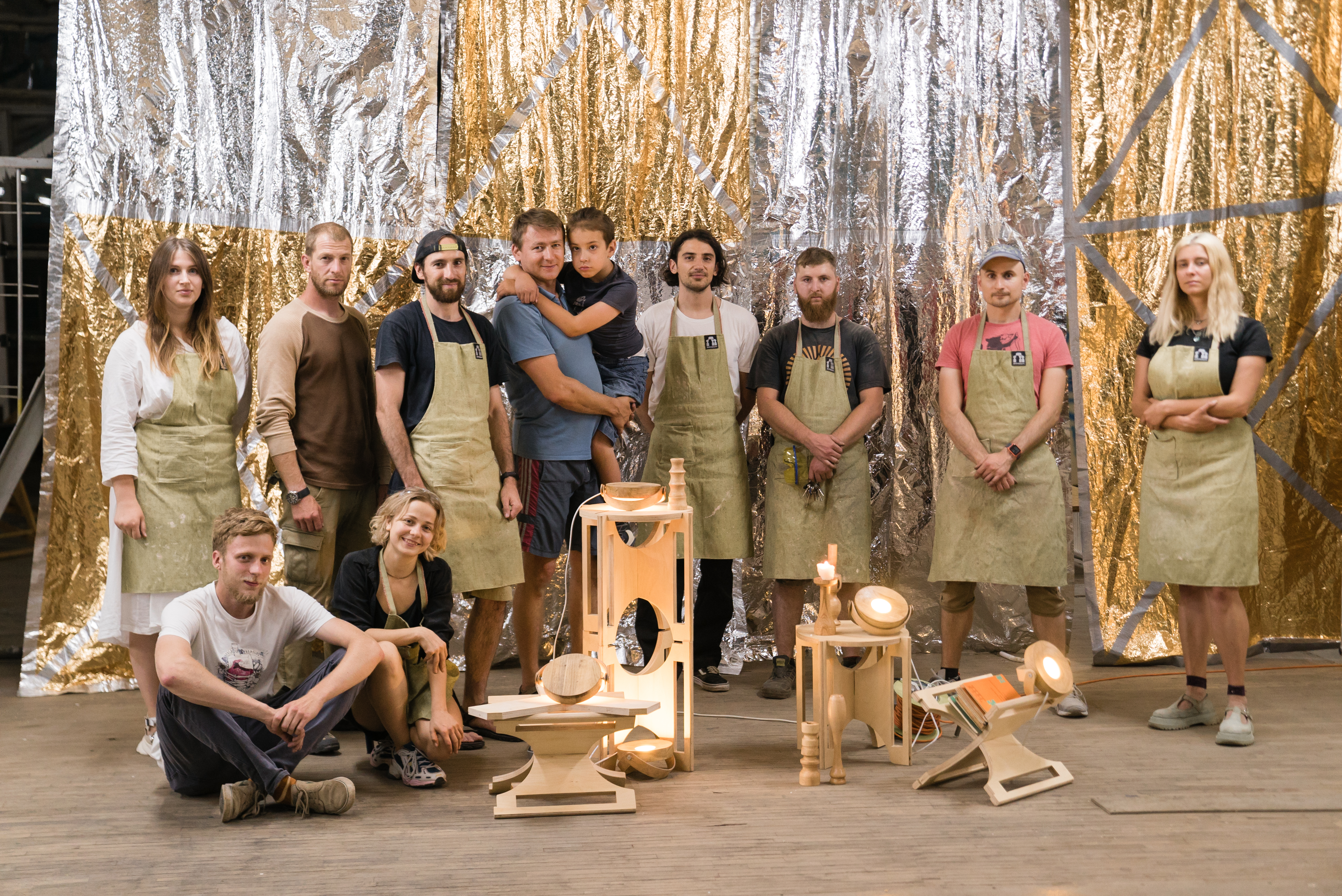» Blog » News » Maker Space: A Force Behind the Development of Innovation and Creative Industries at Promprylad
Maker Space: A Force Behind the Development of Innovation and Creative Industries at Promprylad
The Parasolka (“Umbrella”) open space is a creative environment for makers, craftsmen, carpenters, and designers, which was founded by Metalab, an urban laboratory as well as a partner and one of the residents of Promprylad.Renovation. The workshops are equipped with all the necessary tools and equipment, residents work in a shared workspace and periodically hold open design and prototyping events. Maker Space is a unique combination of industrial design, talent, and opportunities for makers and researchers to test their ideas. Here we present the ideas of the creative space through the personal stories of its residents.
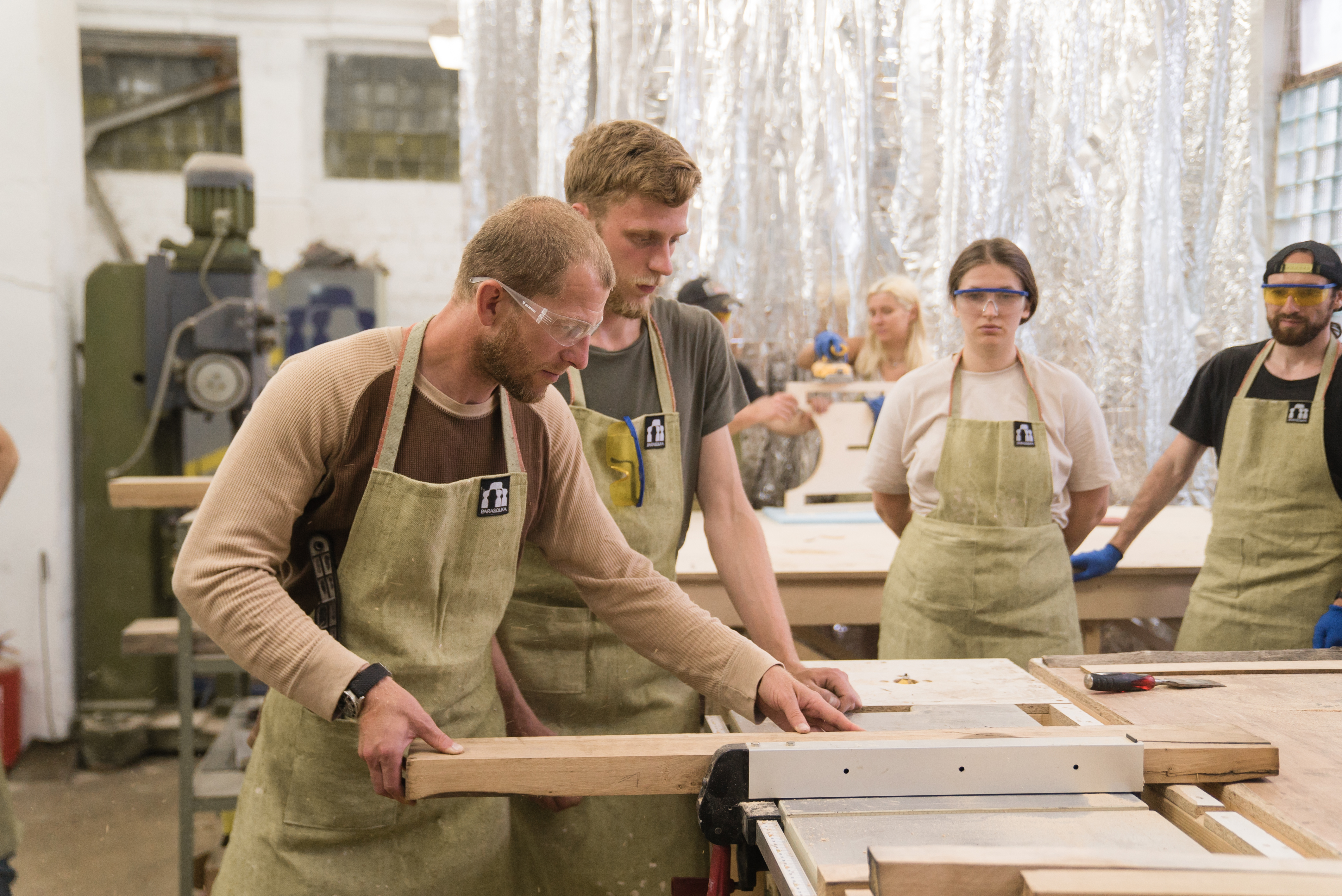
One of the tenants of the space is Borys, the founder of Stoliari, a local workshop for the design and manufacture of wooden products. For over 4 years, his team has been successfully working on furniture creation, product design, and research on the use of new materials in furniture production. They accept individual orders and also deal with small-batch production. When the full-scale war started, Stoliari joined the rear.
“After the full-scale invasion, we suspended most of our projects, stopped commercial activity, and tried to be useful in the area where we had expertise. At the time, there were a lot of requests for metalworking, so we jumped into this field: we made dugout brackets, Czech hedgehogs of various sizes, and tire spikes. The most interesting thing we did was to convert a truck into an armored vehicle.
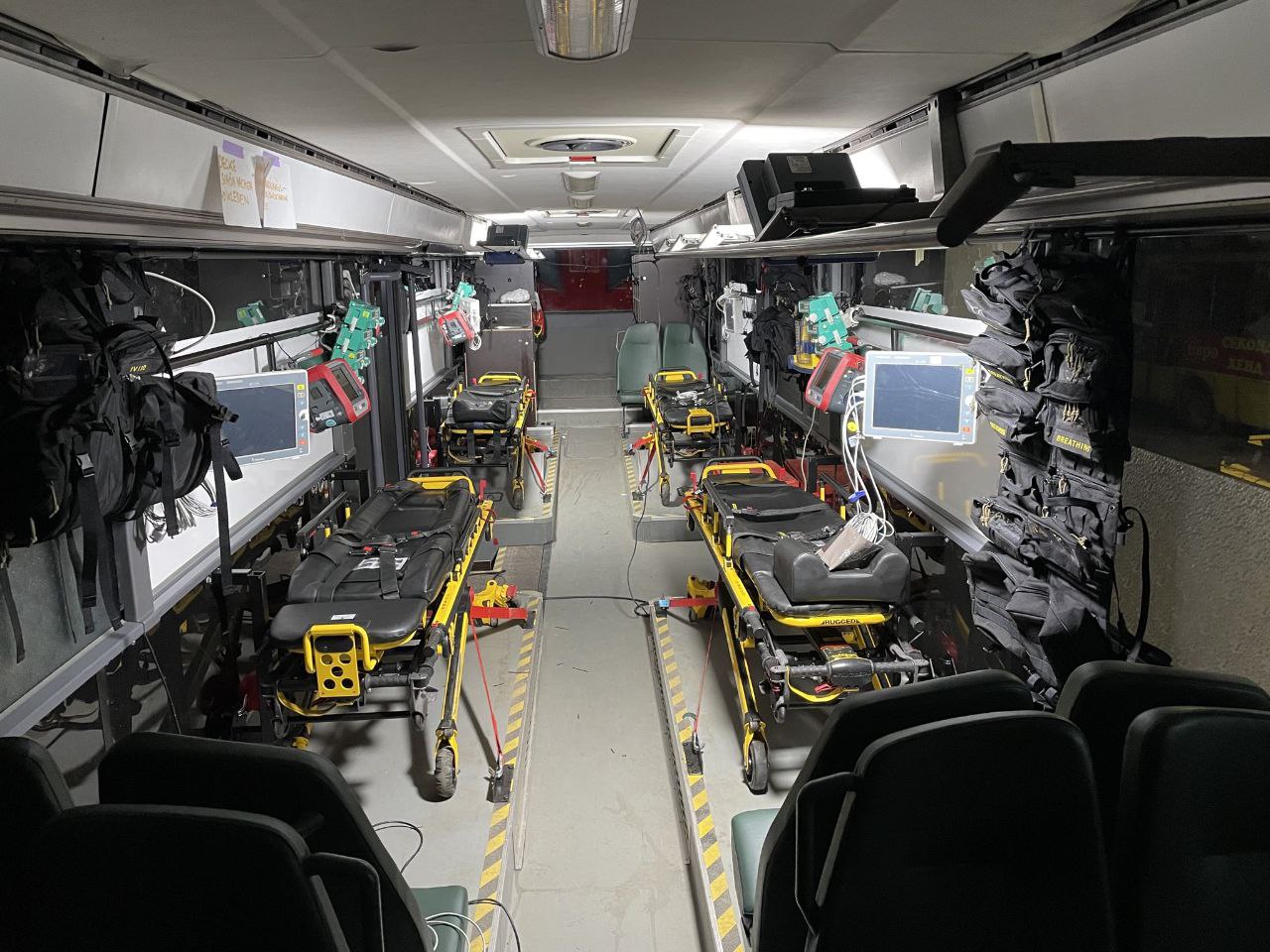
At any given moment, about 10 people could work in the space full time simultaneously. I thank them, and I thank the Save Ukraine Now Foundation, which helped with coordination, sourcing materials, and covering some of the costs.
An interesting carpentry project was the manufacturing of award stands for the Come Back Alive Foundation in cooperation with Metal Time. The Ukrainian team that took part in the Invictus Games presented them to European politicians and even members of the British royal family as a token of gratitude for their support and assistance.”

In the CO-HATY project which was initiated by the Metalab urban laboratory, the Stoliari team dealt with providing housing for IDPs by transforming old buildings into cozy and warm homes. In a similar project with Rubber City, Lviv-based urbanists, the team tackled the problem of storage. As a result, they created a functional module that can serve as a shelf, wardrobe, desk, clothes hanger, and even a partition to solve the problem of dividing the rooms into zones in IDPs’ homes.
Many products made by Stoliari are used by residents and guests of Promprylad, and the team has made partitions for the Business Support Center and Coworking. They divide the space into zones and reduce the noise level because they were made using special noise-absorbing panels.
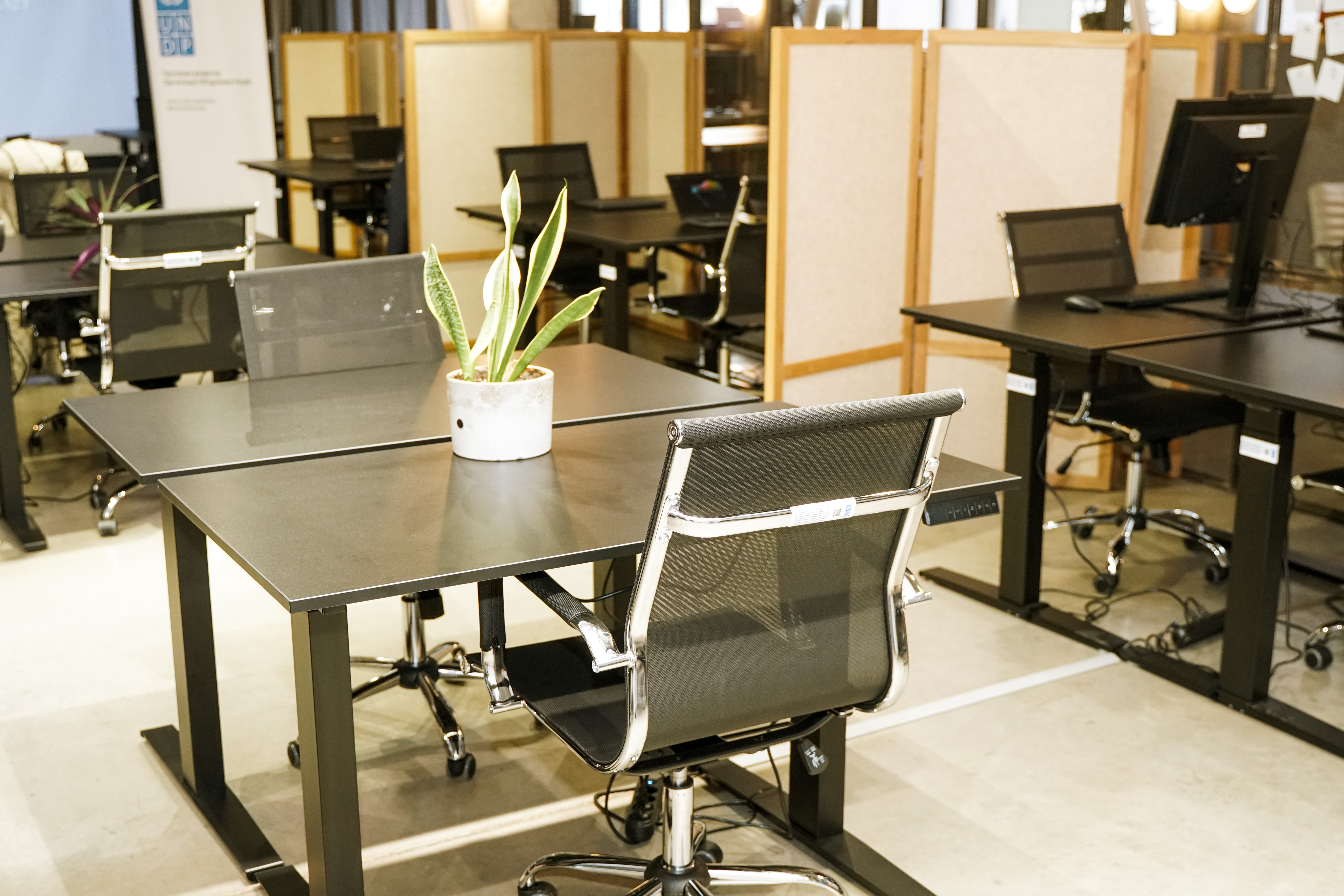
“For me, Promprylad is about people. It’s a hub with many specialists in different fields, and it’s great to look for common ground for cooperation and joint projects. Everything is very interconnected here: I drink coffee at PromBar, which orders chairs from us, order a T-shirt with Stoliari logo from Sasha and Tania from Print Bar Studio; not to mention Metalab with whom we have been cooperating for many years. Promprylad is a big family that I have known for more than 4 years. These are cool people who surprise you, recharge you, and make you grow up along with them. You can work in any location, but it won’t give you the warmth that Promprylad does. That is why this is my choice.”
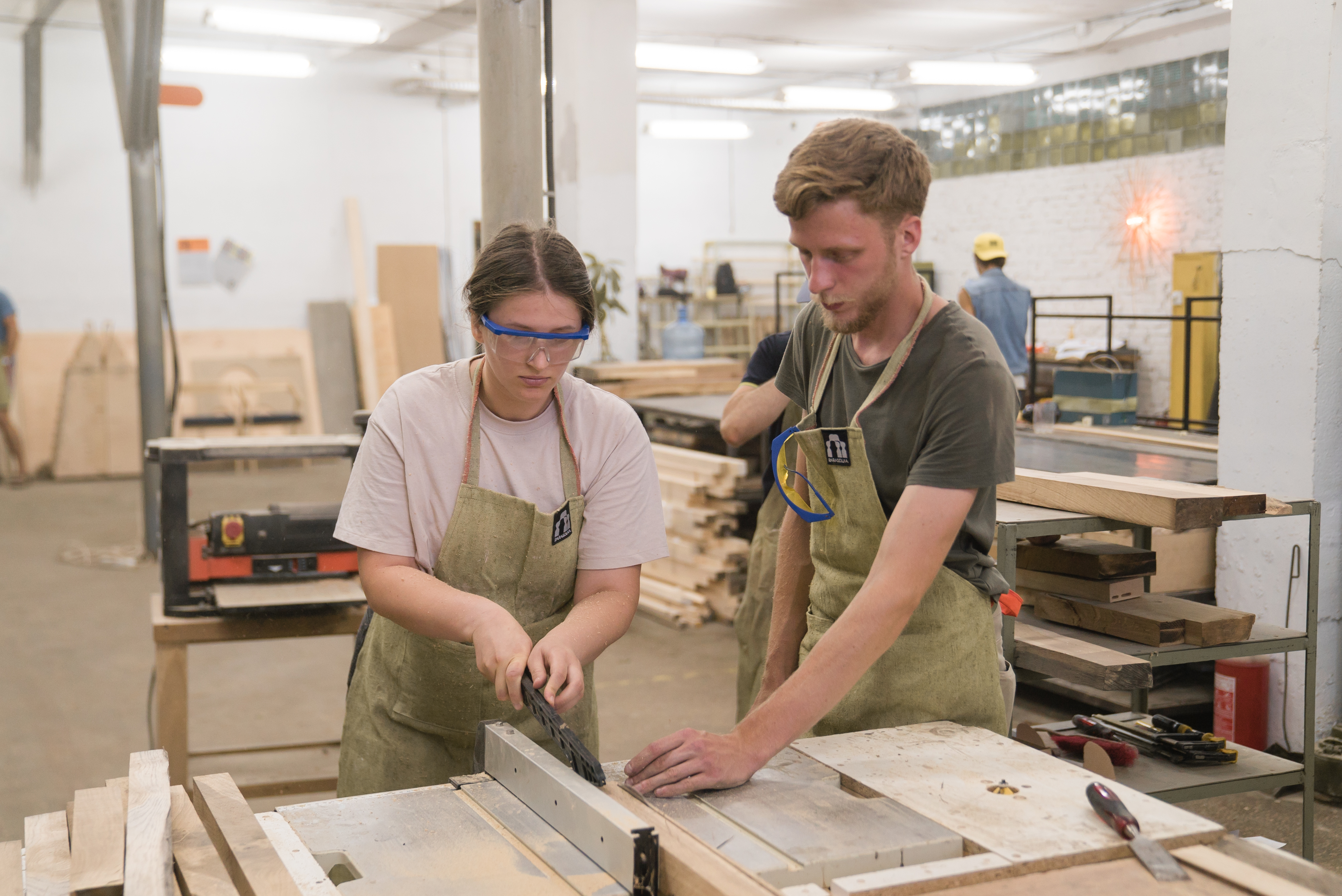
Another resident of Maker Space is Pavlo, the founder of Metal Time, which designs and manufactures metal structures and implements individual projects. More than two years ago, while looking for an opportunity and space for self-realization, he ended up at Promprylad and has since become an integral part of the community.
“From the first days of the full-scale invasion, all the residents stayed here. At first, we helped to equip the space for internally displaced persons, because there were so many people here. Later, there was a big demand for metalworking: we made defensive metal structures, reworked and improved the safety of cars for our guys.
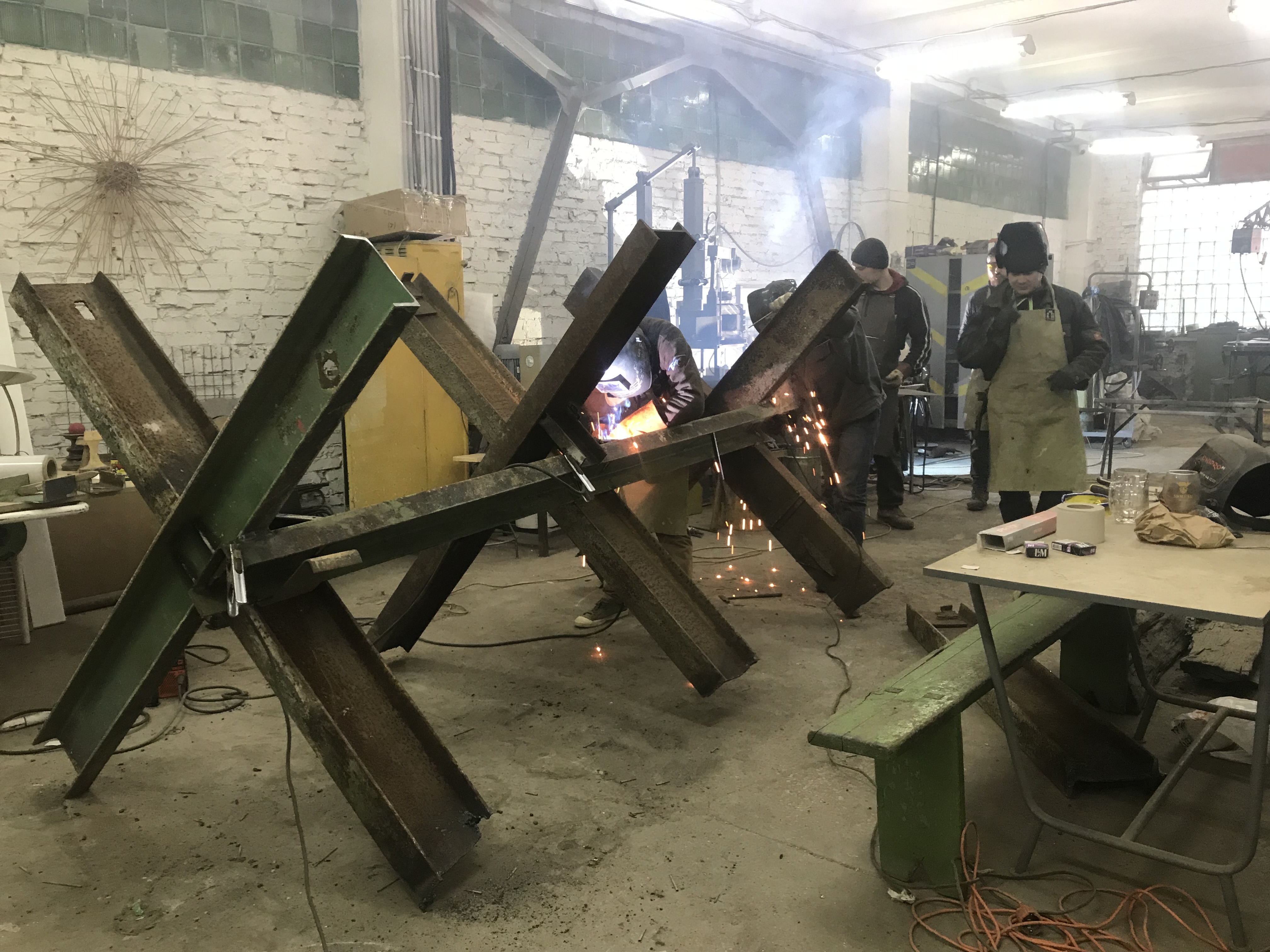
Within the CO-HATY initiative, we manufactured metal shelving, and earlier this year, we developed outdoor furniture for dormitories. A large-scale and interesting project was the one from Cadus, a Berlin-based charity, in which we worked on converting a regular bus into an ambulance. As a result, we got a vehicle that can transport four seriously injured and up to 10 lightly injured people at the same time. The bus is equipped with all the necessary means for first aid, and there are seats for paramedics.”
Together with their friends from Stoliari, the Metal Time team fulfilled an order from the Come Back Alive Foundation: making team coins for the Ukrainian national team at the Invictus Games. They also made pins for the foundation – badges that can be seen on the jackets of their employees.
“For me, Promprylad is first and foremost about people: friends and colleagues. This is a family. In terms of location, you can have production anywhere, but the community where you can get advice, mutual assistance, people with a similar vector of vision who help and support you – they are here.”
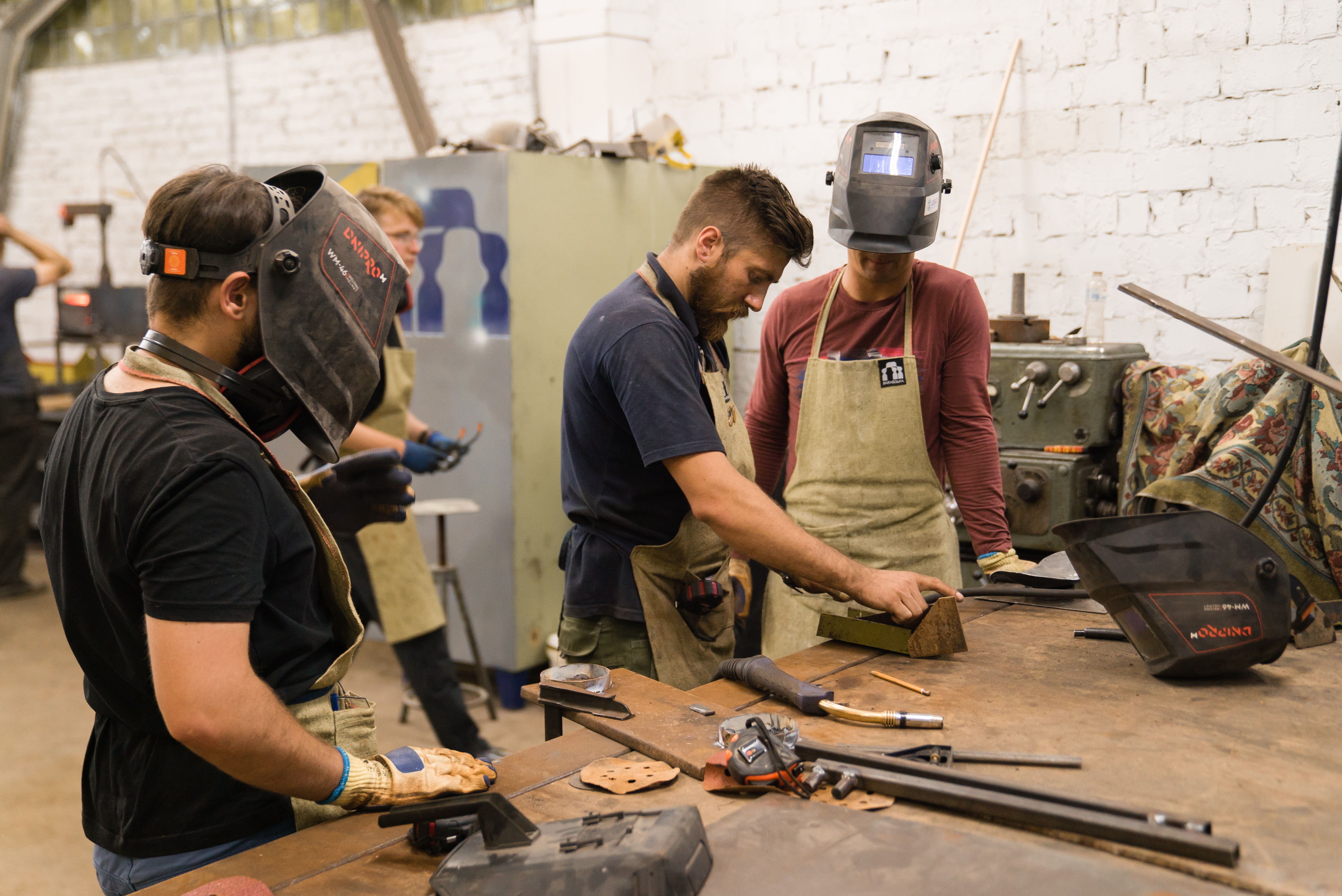
In the future, Maker Space at Promprylad will be in line with the concept of technology democratization, within which people with different ideas and experiences get access to educational opportunities and technical knowledge. Here, they will be able to test their own designs and products before launching mass production. To use the workshop or laboratory, a few training sessions and basic safety awareness will be enough.
“We are currently investing predominantly in collaboration and synergy,” says Anna Pashynska, co-founder of Maker Space and curator of MetaLab, “because entrepreneurs, designers, and scientists often work separately and do not always understand how to work together. So we want these different directions to learn how to work together. Hopefully, we will inspire more and more people to be bolder and apply more and more innovations.”
